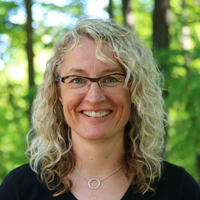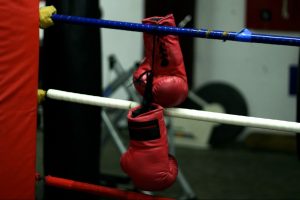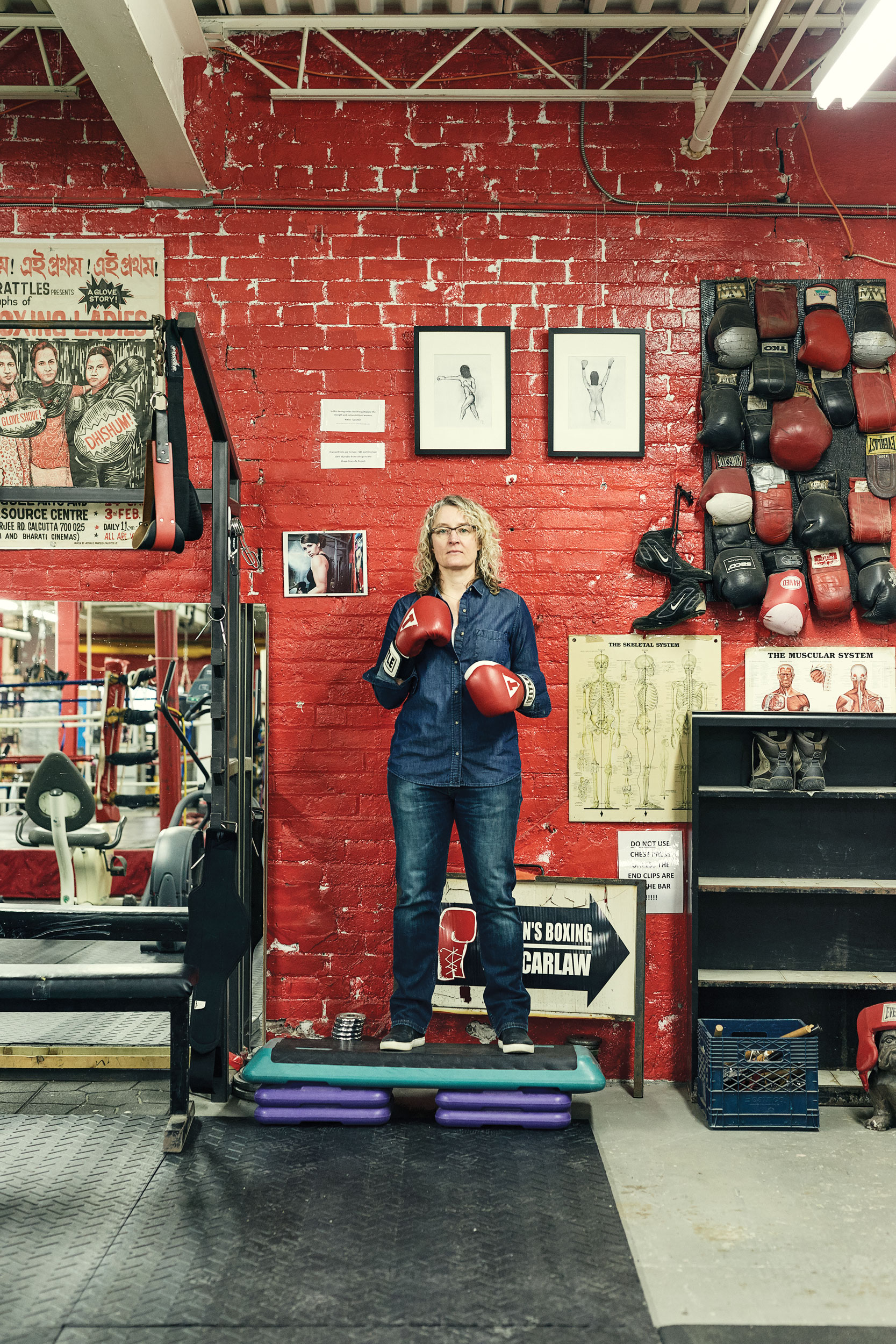Cathy van Ingen knows her way around a boxing ring, and you’ll want her in your corner. Van Ingen is an academic who believes in empowering women to overcome adversity through sport.
An associate professor in Kinesiology at Brock University, van Ingen is a former boxer, and co-founder of the Shape Your Life program, which is a free non-contact boxing program for female-identified survivors of violence that runs out of a boxing club in the west end of Toronto.

Dr. van Ingen will speak on the Shape Your Life program as part of the Health Sciences Dean’s Speaker Series during the UFV Health and Wellness Expo on Mon, March 26 at noon. She will speak in the Aboriginal Gathering Place on the Chilliwack campus. The event is open to all faculty, staff, and students, and the public is welcome.
Dean of Health Sciences Joanne MacLean is excited about welcoming her former colleague to the UFV Chilliwack campus.
“I have long admired Dr. van Ingen’s work. Her research seeks to improve the lives of women, connecting the power of physical activity to improving the health of those who have experienced violence. Cathy’s perseverance in developing and funding the Shape Your Life program is extraordinary. I look forward to welcoming Dr. van Ingen to campus and having her share her work with our community”.
A leading social change researcher with work in areas of gender-based violence, sport, trauma-informed physical activity, geographies of sport, sport media, and youth, van Ingen investigates the relationship between sport, health, inequality, and culture.
She holds a PhD in Physical Education and Recreation from the University of Alberta, and has held academic positions at the University of Manitoba, the University of Alberta, and Brock University.
Over the course of 11 years, van Ingen and her colleagues from Shape Your Life have supported over 1, 600 women.
Dr. van Ingen has long been empowering women who have experienced violence to take back their bodies through sport. “Trauma is rooted in survivor’s bodies,” she notes.
Shape Your Life is not teaching women how to fight. It is founded on the idea that women and female identified transgender survivors of violence can connect to their bodies, be in control, learn about themselves, and channel anger in a productive way, within a sport that did not support amateur female participation in Canada until 1991.
“Having control is really important when you have experienced violence and all the coaches understand that participants might need different approaches sometimes,” van Ingen says.
 “Shape Your Life is trauma informed,” notes van Ingen, “which means that our staff and coaches understand that people’s past trauma might affect them in different ways while they are boxing. Some might come to the gym exceptionally anxious, or be in a state of hyper-arousal where it is difficult for them to trust that they will be safe. We make sure our coaches and staff understand, recognize, and know how to respond to the different ways people experience the effects of trauma and violence.”
“Shape Your Life is trauma informed,” notes van Ingen, “which means that our staff and coaches understand that people’s past trauma might affect them in different ways while they are boxing. Some might come to the gym exceptionally anxious, or be in a state of hyper-arousal where it is difficult for them to trust that they will be safe. We make sure our coaches and staff understand, recognize, and know how to respond to the different ways people experience the effects of trauma and violence.”
While participants have been impacted by various forms of violence, they are not down for the count.
Through the Shape Your Life program, women and transgender people who have survived experiences of sexual, emotional or physical trauma are encouraged to use boxing as a way to positively dismiss fear and let out anger.
“SYL is not about talking, but about bodywork, and that is a very different way to work with people who have experienced violence. Participants are not treated like clients in a social work setting, and they are not asked to disclose any experiences of violence, something that is normally required during the intake process of a lot of programs offered to women,” says van Ingen.
The program does not fall neatly into traditional practices of talk therapy, and it challenges narrow conceptions about how women should express their emotions and anger. “That opportunity is there for men in a lot of ways, but there are very few places and spaces where women are encouraged to use their aggression productively,” van Ingen says.
Recently, the Shape Your Life project received $420, 000 in funding from the Public Health Agency of Canada. The funding will facilitate a three-year research study that will examine mental and physical health outcomes of survivors of violence within the program.
Want to learn more? RSVP to the Dean’s Speaker Series online.
Featured image photo credit: Daniel Ehrenworth Photography.

